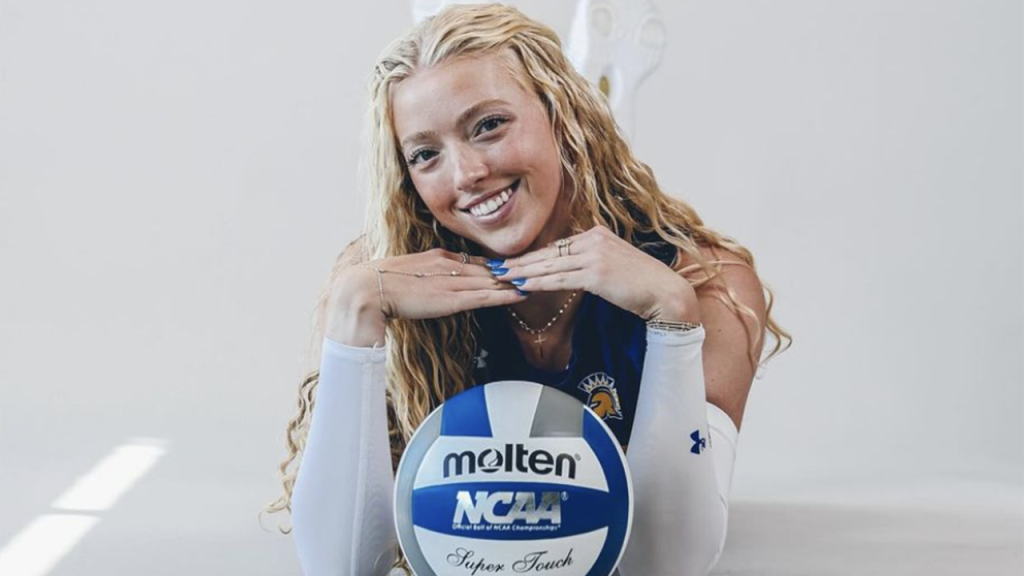The ongoing debate surrounding the inclusion of transgender women in women’s sports has reached a new level of intensity with the legal action initiated by Texas Attorney General Ken Paxton against the NCAA. Paxton’s lawsuit alleges that the NCAA’s policy of allowing transgender women to compete alongside cisgender women constitutes deceptive marketing practices, violating the Texas Trade Practices Act. This legal challenge comes on the heels of a separate lawsuit filed earlier this year by San Jose State University volleyball player Brooke Slusser and other plaintiffs against the NCAA and SJSU for allowing a transgender woman, Blaire Fleming, to participate on the Spartans’ volleyball team.
Paxton’s lawsuit centers on the argument that the NCAA misleads consumers by advertising sporting events as “women’s” competitions while allowing biological males to compete, thus creating, in his view, “mixed sex competitions.” He contends that this practice not only deceives viewers but also jeopardizes the safety and well-being of female athletes. Paxton’s rhetoric echoes the sentiments expressed by Slusser and her co-plaintiffs in their earlier lawsuit, which sought to prevent Fleming from participating in the Mountain West Conference women’s volleyball tournament. Though their request for an injunction was denied, their concerns about fair competition and the potential displacement of cisgender female athletes resonate with the broader arguments presented in Paxton’s lawsuit.
The NCAA, in response to Paxton’s legal challenge, has reaffirmed its commitment to promoting Title IX and ensuring fair competition in all its championships. While avoiding direct comment on the pending litigation, the organization’s statement underscores its ongoing support for women’s sports and its dedication to upholding the principles of inclusivity. This stance reflects the NCAA’s broader policy on transgender athlete participation, which allows transgender women to compete on women’s teams after undergoing hormone therapy for one year. This policy, while intended to create a more inclusive environment for transgender athletes, has become a point of contention for those who believe it infringes upon the rights and opportunities of cisgender female athletes.
The intersection of these legal challenges highlights the complex and often polarizing nature of the debate surrounding transgender inclusion in sports. On one side, advocates for inclusion emphasize the importance of recognizing gender identity and ensuring equal opportunities for all athletes. They argue that excluding transgender women from women’s sports reinforces discriminatory practices and denies them the chance to fully participate in athletic competition. On the other side, critics argue that the inclusion of transgender women creates an unfair playing field due to perceived biological advantages, potentially displacing cisgender female athletes and compromising the integrity of women’s sports. This tension between inclusion and fairness forms the core of the legal and ethical arguments being presented in both Paxton’s lawsuit and the earlier lawsuit involving Slusser.
Brooke Slusser’s public reaction to Paxton’s lawsuit further underscores the growing momentum of the movement seeking to restrict transgender participation in women’s sports. Her warning to the NCAA suggests that legal challenges are likely to continue and intensify until the organization revises its current policy. This sentiment reflects a broader societal debate, with various states enacting legislation to regulate transgender participation in youth and collegiate sports. These legislative efforts, often coupled with legal challenges like Paxton’s, create a complex and evolving landscape for the NCAA and other governing bodies in collegiate athletics.
The NCAA now faces the difficult task of navigating these competing interests and legal pressures while seeking to maintain its commitment to both inclusivity and fair competition. The outcome of Paxton’s lawsuit, along with other ongoing legal and legislative battles, will likely have significant implications for the future of transgender participation in collegiate sports and beyond. The resolution of these challenges will require careful consideration of the scientific, ethical, and legal dimensions of the issue, balancing the rights and opportunities of all athletes while ensuring the integrity and fairness of competitive sport.

